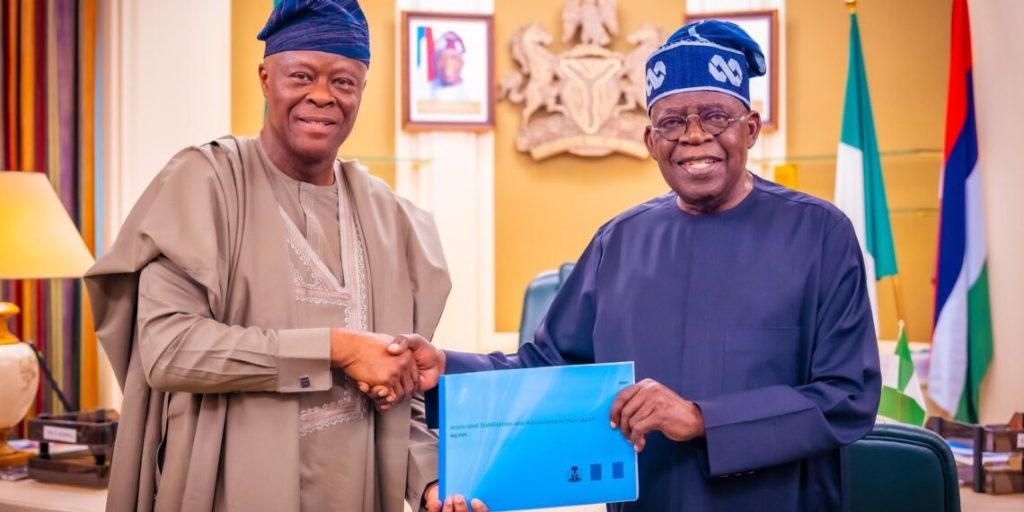Nigeria’s Minister of Finance, Wale Edun, has praised President Bola Tinubu for implementing transformative reforms that have stabilised the economy and reclaimed 5% of the nation’s GDP previously lost to inefficiencies.
In an interview with Bloomberg during the World Economic Forum (WEF) in Davos, Edun credited the Tinubu administration’s policies, particularly the removal of wasteful subsidies and the adoption of market-driven pricing for petroleum products and foreign exchange, for these achievements.
“Under President Bola Tinubu, Nigeria has stabilized the economy; it has taken back 5% of GDP that was being wastefully lost to the federal government and fiscal authorities,” Edun said.
Edun noted that the reforms are already attracting foreign direct investments (FDI). He cited Shell’s $5 billion final investment decision and TotalEnergies’ $3 billion commitment as evidence of growing investor confidence in Nigeria’s economy.

“These steps have set the stage for the return of foreign direct investments,” he explained, pointing to early signs of progress,” he said.
He added, “Already, Shell has announced a $5 billion final investment decision, and TotalEnergies has announced a $3 billion total investment decision. These are significant commitments that reflect renewed confidence in Nigeria’s economy.”
Addressing reports of stalled investment commitments from Saudi Arabia, Edun clarified that the discussions are ongoing.
“I’m not sure funds were committed. It’s an ongoing conversation. It’s part of the President’s economic diplomacy around the world,” he explained.
In December 2024, Edun led a delegation to Saudi Arabia to bolster economic partnerships. The focus was on improving export credit, enhancing insurance frameworks, and expanding market access.
Regarding Nigeria’s fiscal deficit, Edun stated that while Eurobond sales are under consideration for 2024, the government is committed to avoiding inflationary practices like money printing.
President Tinubu’s administration has received widespread attention for its decisive economic measures, including the removal of fuel subsidies. These subsidies, which analysts estimate cost trillions of naira annually, had exacerbated Nigeria’s fiscal challenges.
Additionally, the unification of exchange rates has been lauded as a critical step toward attracting foreign investment and resolving distortions caused by multiple exchange rate systems. These efforts aim to strengthen Nigeria’s balance of payments and support sustainable economic growth.


